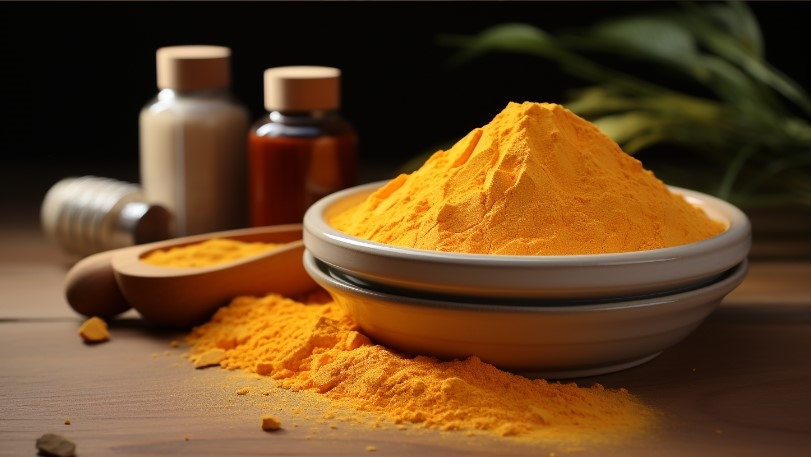医療健康からコエンザイムQ10を語る

コエンザイムQ10は脂溶性の抗酸化物質である。コエンザイムQ10は人間が生きていく上で欠かすことのできない要素の一つです。それは人間の細胞および細胞エネルギーの栄養物を活動化させ、人間の免除を改善し、酸化防止を高め、老化を遅らせ、そして人間の活力を高めることができます。機能、広く循環器系の病気のための医学で使用される。近年では、広く国内外の栄養健康製品や食品添加物に使用されている。
コエンザイムQ10はユビキノンとしても知られ、すべての真核生物の細胞内に存在する必須化合物です。コエンザイムQ10は主に人体において補助酵素の役割を果たし、細胞のエネルギー代謝と抗酸化反応に関与している。心臓、肝臓、腎臓などのエネルギー消費量の多い組織に特に多く含まれる。人体は食物摂取や自己合成によって摂取できるが、加齢とともに合成能力が徐々に低下するため、摂取量も不足してくる。このとき、サプリメントによる補給が必要となる。コエンザイムQ10には、主に次の3つの作用機序がある:心臓血管の健康:コエンザイムQ10は細胞のエネルギー代謝に関与し、心臓機能に重要な影響を与える。心臓の収縮期および拡張期機能を改善し、正常な心臓リズムを維持するのに役立ちます。さらに、コエンザイムQ10は血圧やコレステロール値を調整し、心血管疾患を予防・治療する効果もあります。抗酸化作用:コエンザイムQ10は強力な抗酸化物質として、フリーラジカルを中和し、酸化プロセスを抑制し、細胞や組織の損傷を減らし、老化プロセスを遅らせ、慢性疾患の発生を予防することができる。エネルギー生産:コエンザイムQ10は、ミトコンドリアの重要な構成成分として、細胞の呼吸鎖における電子伝達プロセスに関与し、ATPの産生を促進し、細胞や身体に必要なエネルギーを供給し、身体のエネルギー供給や疲労回復に好影響を与えます。この記事では、医学的・健康的観点からコエンザイムQ10の機能と効果について探っていきます。
心血管疾患の治療におけるコエンザイムQ10(CoQ10)の役割
抗酸化作用
コエンザイムQ10は強力な抗酸化物質で、フリーラジカルを中和し、酸化ストレスによる心臓や血管へのダメージを軽減する。
心筋機能の改善
コエンザイムQ10はエネルギー代謝プロセスに関与し、心筋細胞にさらなるエネルギーを供給することができる。
心臓の収縮期および拡張期機能を改善し、正常な心臓リズムを維持し、心筋収縮の強さと速さを促進する。
血圧を下げる
CoQ10のサプリメントが血圧値を下げ、高血圧の人の心臓への負担を軽減することを示唆する研究もある。
心臓手術後の回復を改善する
いくつかの研究では、コエンザイムQ10の使用が心臓手術後の回復と回復を助け、手術によって引き起こされる酸化ストレスと炎症を軽減する可能性があることがわかっている。
心血管疾患の危険因子の改善
コエンザイムQ10サプリメントは、脂質異常症を改善し、トリグリセリドと低比重リポタンパク質コレステロール(LDL-C)レベルを低下させ、高比重リポタンパク質コレステロール(HDL-C)レベルを上昇させ、心血管疾患のリスクを低下させる可能性がある。 病気のリスク
血圧とコレステロール値の調整におけるコエンザイムQ10の役割
血圧を調整する
コエンザイムQ10には血管拡張作用があり、血管壁を弛緩させ、血管収縮を抑えることで、血圧を下げる効果があると考えられている。
コレステロールを減らす
コエンザイムQ10は、コレステロールの代謝を促進し、コレステロールの輸送と排出を増加させ、血中コレステロール値を低下させる。
抗酸化作用
コエンザイムQ10の強い抗酸化作用は、フリーラジカルを中和し、血管やコレステロールへの酸化ストレスのダメージを軽減する。
内皮機能の改善
コエンザイムQ10は、内皮細胞の機能を改善し、一酸化窒素(NO)の産生を増加させ、血管の拡張をさらに促進し、血圧とコレステロールのバランスを維持するのに役立つ。
細胞の損傷と老化に対するコエンザイムQ10の保護効果
抗酸化作用
コエンザイムQ10には強力な抗酸化作用があり、フリーラジカルを中和し、酸化ストレスによる細胞の損傷を軽減します。フリーラジカルは細胞内で自然に生成される副産物ですが、過剰なフリーラジカルは酸化ストレスを引き起こし、細胞膜、細胞核、細胞小器官にダメージを与えます。コエンザイムQ10の抗酸化作用は、このダメージを軽減します。
エネルギー代謝サポート
コエンザイムQ10は、細胞のミトコンドリアにおいて重要な役割を果たし、細胞内エネルギー代謝の際に電子伝達鎖に関与する。したがって、正常な細胞エネルギー代謝は、細胞の健康と機能を維持するために極めて重要であり、コエンザイムQ10の存在は、正常な細胞機能を維持するために必要なエネルギーを供給することができる。
細胞膜の安定性を維持する
コエンザイムQ10には、細胞膜の安定性を維持する働きがあり、細胞膜の過剰な酸化や損傷を抑えることができる。細胞膜は細胞の防護壁である。細胞膜の完全性を維持することで、コエンザイムQ10は外部からの刺激やダメージから細胞を守ることができる。
一般的にコエンザイムQ10は、心臓血管の健康を改善し、血圧を下げ、心臓病のリスクを軽減することができる。同時に、神経系と認知機能に対するコエンザイムQ10の効果は、アルツハイマー病の発症を遅らせることができる。また、コエンザイムQ10は筋肉機能にも良い影響を及ぼし、脳損傷後の回復や筋肉疾患の回復に重要な良い影響を及ぼす。これらの研究結果は、医療・健康分野におけるコエンザイムQ10の応用可能性を高めていくだろう。
